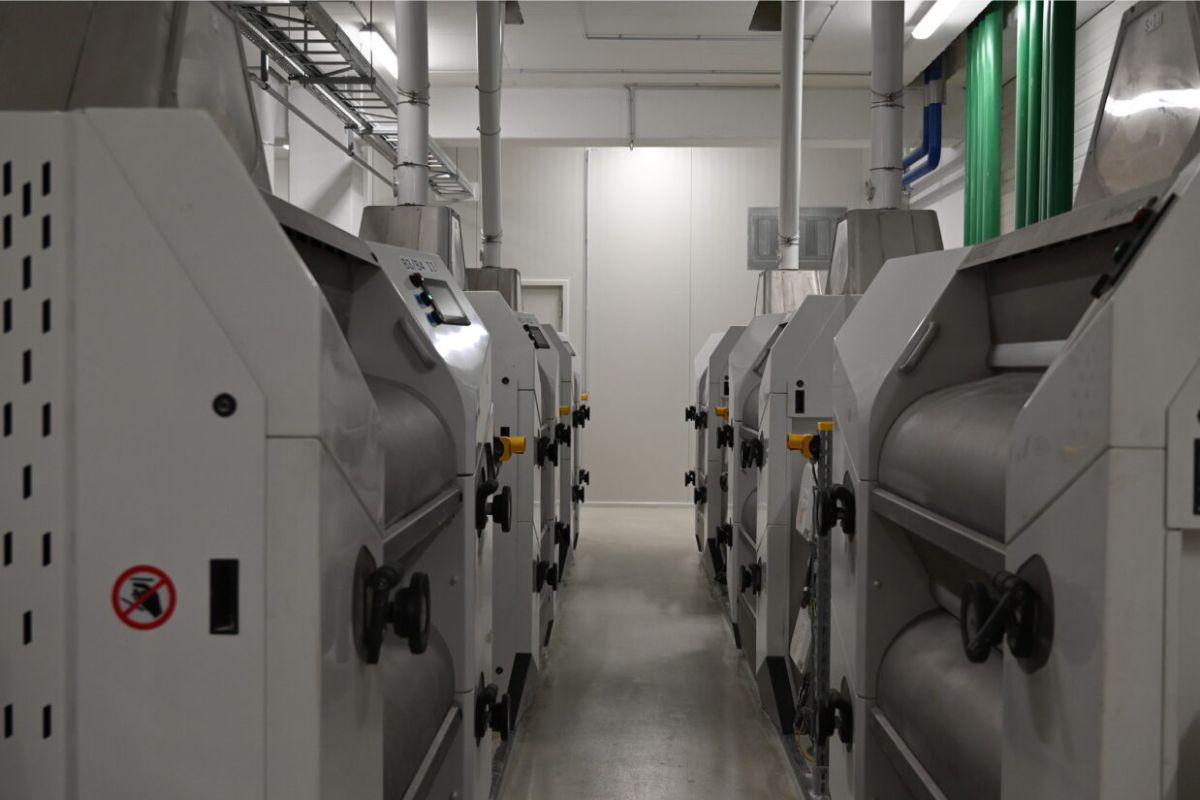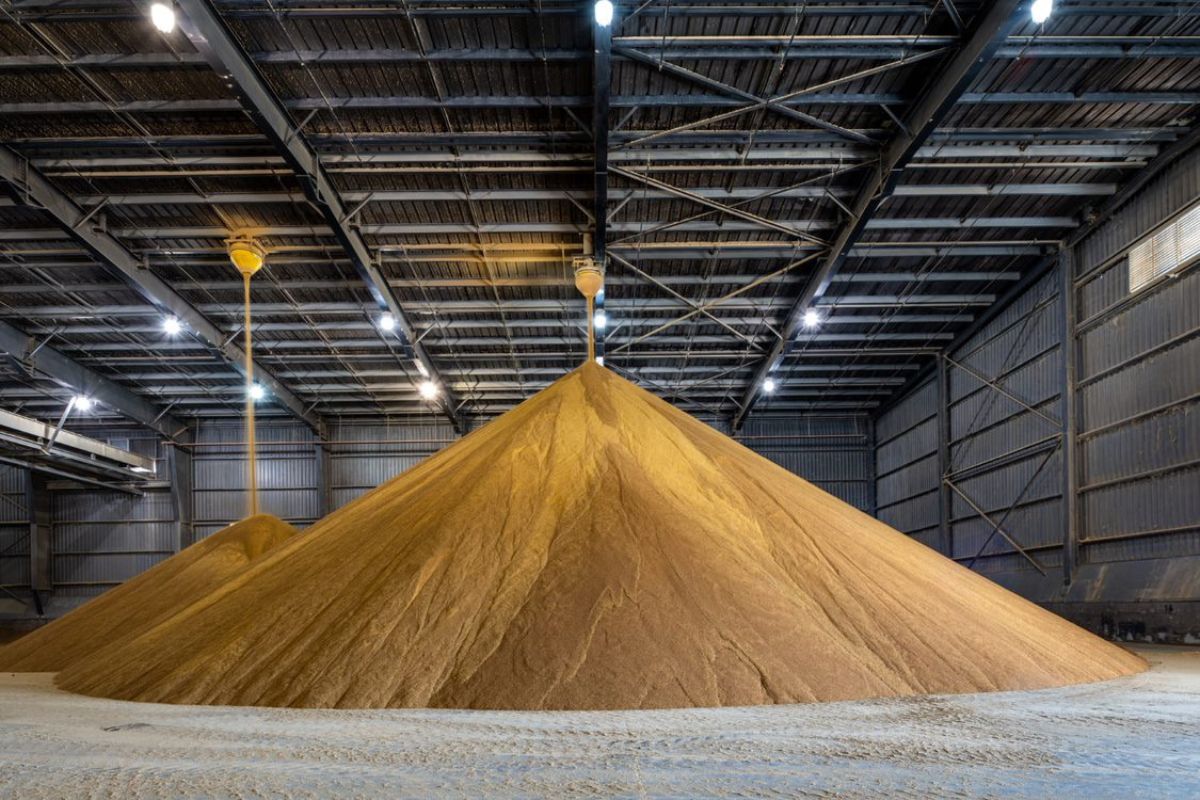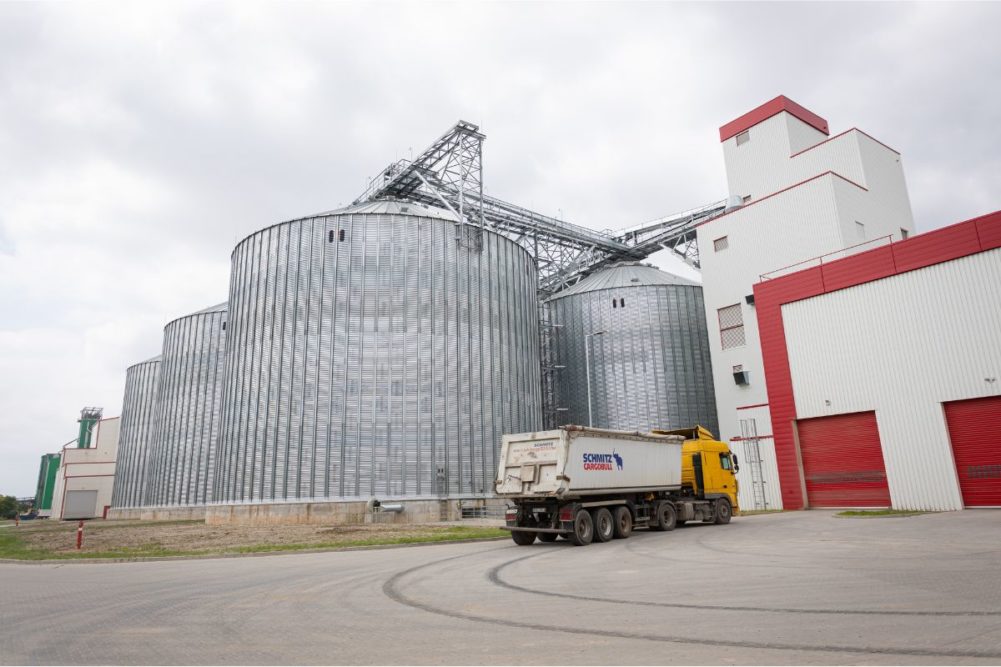DUNAFÖFOLDVÁR, HUNGARY — Pannonia Bio’s sprawling Hungarian biorefinery complex, which includes the largest single-site corn ethanol plant in Europe, grew even larger recently with the construction of what the company describes as “the world’s first high-capacity production plant for barley protein concentrates.”
Located on more than 40 hectares along the Danube River near the town of Dunaföfoldvár in central Hungary, the plant has the capacity to process 800 tonnes of barley per 24 hours and is designed so that production capacity can be doubled in the coming years.
Pavel Kudriavtcev, chief executive officer of Pannonia Bio, said the company saw an intriguing opportunity, which drove the decision to build the barley plant.
“Despite being among the five most widespread agricultural crops worldwide, only a small fraction of barley production is used for human food,” Kudriavtcev said. “Recognizing this untapped potential, we aim to explore innovative ways to harness barley’s nutritional benefits to address global food challenges.”
He also noted that the versatility and resilience of barley make it an ideal crop for sustainable agriculture, especially in drought-prone regions. Hungary is becoming a bigger player in terms of barley production, having planted a record 320,000 hectares in the 2022-23 marketing year, a mark that is projected to be topped this year with 356,000 hectares, according to Eurostat. With Hungarian production nearing 1.5 million tonnes per year, Pannonia Bio will be able to source all its barley domestically, Kudriavtcev said.
“Hungary’s robust agricultural resources offer the perfect environment to scale up barley production, solidifying our commitment to sustainable sourcing and responsible production practices,” he said. “We realized that from the undemanding and easy-to-grow barley we can create valuable, renewable and sustainable solutions for agriculture, the energy sector, food industry and many other sectors.”
The number of products that can be derived from barley is also a plus, Kudriavtcev explained.
“While barley is already known for its role in beverages, like beer, as well as animal feed, we firmly believe in its vast untapped potential as a nutritious and adaptable food source,” he said.
The plant produces more than 350,000 tonnes per year of protein products from corn and barley, predominantly for animal feed use.
Pannonia Bio has several fish farms that consume part of the barley-based protein produced at the mill and there is also strong demand for the product in pet food formulations.
The company anticipates the product will be entering human food markets soon.
“Like other plant-based protein sources, barley protein concentrate has huge potential in various sectors,” Kudriavtcev said.
The barley milling process

Bühler installed MDDZ Diorit roller mills inside the plant.
| Credit: ©PANNONIA BIOHe said all barley that arrives at the mill is inspected and tested before being put into storage. The barley then undergoes a pre-cleaning process in which awn and other impurities are removed. The grinding process involves separating the grain from the husk and then being milled in three stages.
In the protein production process, all non-protein components of the de-husked barley (namely beta-glucans, starch, lipids and fibers) are removed to the extent practicable through enzymatic hydrolysis and specialized equipment, leaving a barley concentrate of approximately 60%. In a circular economy solution, the hydrolyzed other components are then sent as an aqueous solution into the co-located corn ethanol plant rather than into the waste water treatment plant. Currently, ethanol is produced from this stream, but in the future the company hopes also to capture soluble protein from it.
After drying and pelleting, a premium feed ingredient with around a 60% protein content is obtained. The finished product is sold in one-tonne bags.
Pannonia Bio hired Uzwil, Switzerland-based Bühler to be its primary equipment supplier. Equipment installed in the plant includes Bühler’s LAAB grain cleaner, MTRC separator, MTSD destoner, BSPB polisher, MDDZ Diorit roller mills, MPAK Sirius sifters, DFZC hammermill, AHHD pellet mill and MSDH and MSDM scales.
The two companies have teamed up before, as Bühler supplied equipment to Pannonia’s corn fiber separation plant that was built about five years ago.
Kudriavtcev noted that the barley plant and biorefinery are strategically located adjacent to each other, forming a highly advantageous setup.
Products can be shipped via a nearby port located along the Danube River, as well as by road and rail, for distribution of products across Europe and further afield. An experienced logistics team manages an efficient freight network distributing to more than 30 countries. Pannonia Bio’s transportation network includes shipping bays for year-round low-cost barge transportation, truck loading bays and a dedicated rail terminal.
Investing in a green future

DDGS derived from corn processed at the company’s ethanol plant.
| Credit: ©PANNONIA BIOPannonia Bio was launched during the early years of the “bioeconomy revolution.”
The company, which was founded in 2009 by the Ireland-based Turley family and is a subsidiary of Dublin-based ClonBio Group, started as a simple stand-alone corn ethanol plant in Hungary. Ethanol production has almost tripled since the plant opened with more than half a billion liters of renewable fuel manufactured per year. About 7% of the EU ethanol market is supplied by Pannonia Bio.
The company, which contributes more than €1 billion to Hungary’s GDP and supports more than 6,000 jobs indirectly, mostly in rural areas, emphasizes that its ethanol protects the environment by having greenhouse gas emissions that are 30% of the petrol it displaces.
In recent years, it has evolved into a biorefinery that, in addition to ethanol, also produces biogas, organic soil fertilizer, dried distillers grains and solubles (DDGS), corn oil, Pannonia Plus corn protein concentrate, Pannonia Plus barley protein concentrate, corn wet fiber and barley wet fiber.
In only 11 years, Pannonia Bio has expanded from a standalone ethanol plant to a biorefinery complex that includes multiple types of grain processing that produces products that are used for a variety of industrial and animal feed purposes.
The ethanol plant produces hundreds of thousands of tonnes per year of protein-rich animal feed as DDGS, branded Pannonia Gold. The oils in the corn also are used to produce liquid animal feed, with the company producing more than 10,000 tonnes of distillers corn oil each year.
The refinery, which operates 24 hours a day, seven days a week, can process 1.6 million tonnes of grain annually.
The Turley family has never been timid about expanding its operations, particularly when it sees opportunity, subscribing to the old adage: “You have to spend money to make money.”
“Investment further reduces costs and increases production capacity across the board,” said Mark Turley, founder of Pannonia Bio. “It also supports the introduction of innovative new bioproducts that promise significant benefits for human and animal health.”
The refinery creates a substantial market for locally produced feed corn, making the plant a key operator in the Hungarian maize market.
“It is wonderful to see a farmer being able to harvest his corn and take it with his own truck to our plant and get paid in a few days,” Turley said.






